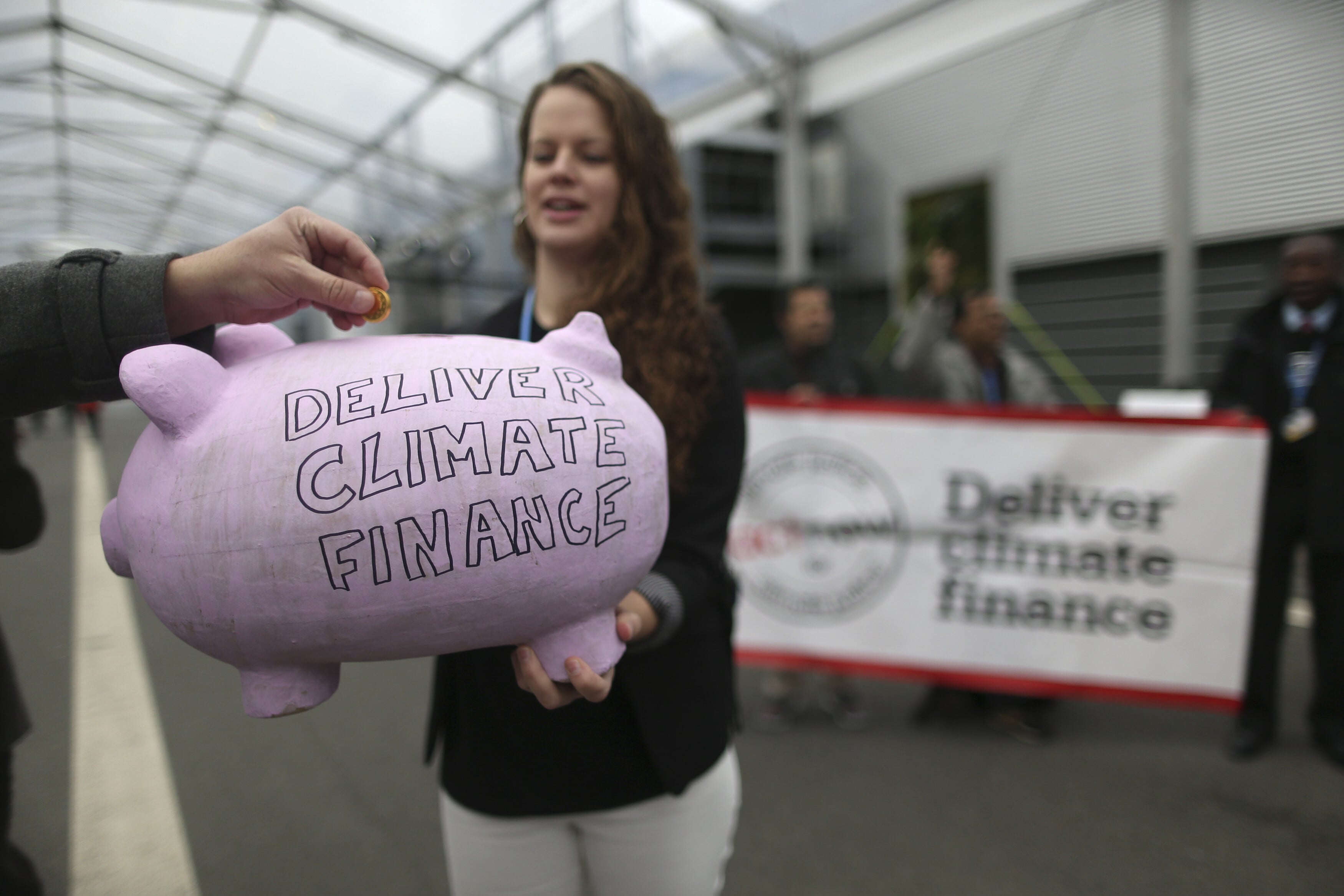It's time for climate change investing to be put into action

Climate change investing needs to take the lead towards achieving net zero pledges
Image: Bill Oxford / Unsplash
Stay up to date:
SDG 13: Climate Action
Listen to the article
- While many leading Wall Street firms are making climate pledges, these are not always backed up with action.
- Investment firms must now integrate public climate policy into their business objectives and activities.
- Doing so will help meet net-zero pledges, keep increasingly ESG-focused investors onside - and will benefit their bottom line, too.
The recent election of two activist directors to the board of one of the world’s biggest oil and gas companies is a watershed moment for climate action. However, Wall Street’s leaders have provided little more than a trickle of support for the public policies needed to accelerate dramatic market shifts and make net zero a reality through climate change investing.
A case in point: In April, investors managing $37 trillion committed to the Net-Zero Asset Manager Initiative, whereas a May investor statement for US EPA methane regulations – a critical early step on the path to net zero – garnered investor support of just $5.35 trillion in assets under management (AUM).
As public and corporate concern about the climate grows and as expectations for financial players escalate, it’s time for the C-Suite to integrate climate into their firms’ public policy advocacy.
The risk management imperative for climate change investing
In recent months, climate commitments among top asset managers and investment banks have become almost ubiquitous. Often, what's missing are concrete and holistic plans to turn net-zero goals into results at scale.
Public policy is among the climate issues financial firms must take on, because government action is a linchpin of:
1. Achieving decarbonization at the speed and scale required to meet financial firms’ public pledges.
2. Averting the worst consequences of climate change for the financial system and the real economy.
Asset managers could find exposure to equities at odds with their net-zero commitments if climate policy opportunities aren’t maximized. Banks could find entire segments of their lending books toxic if public policies to decarbonize capital-intensive sectors of the economy are not implemented - and that's not to mention the physical climate risks to portfolios from infrastructure and businesses that are more susceptible to flooding or extreme weather events, should our emissions continue unabated.
There is a better way. Government – in dialogue with business, investment and civil society leaders – can mandate disclosures, incentivize investments and implement standards for emission reductions across key sectors like oil and gas, transportation, power and industry. That’s why progressive investors have begun requesting disclosure of climate lobbying by their portfolio companies, to ensure that any such lobbying is aligned with the Paris Agreement goals.
Upside to climate policy integration
As fund managers increasingly turn to environmental, social and governance (ESG) criteria, advancing public policy that accelerates decarbonization can generate tailwinds for financial performance.
Given its considerable influence, Wall Street could have an active role in driving government policy towards more ambitious and innovative climate change investing, but only if finance leaders get off the sidelines.
Right now, the choice for executives is clear: take a seat at the climate policy table, or miss opportunities to build a better future for your business.
Three things every C-Suite should implement in 2021
As the business case for climate action is clearer than ever, it’s time to get past the myths keeping investors from engaging on climate public policy. To begin integrating climate public policy into your firm’s net zero plans, there are three initial steps:
1. People. Start by driving climate public policy as an important advocacy priority from the CEO on down. Develop and resource a climate policy team with an empowered leader to create a single point of accountability. This person should be a member of senior management – a chief climate officer, for example. The role could report directly to the board’s ESG committee (or closest equivalent).
2. Process. Integrate climate public policy into core processes, for example:
i. Regular meetings of executive or investment committees.
ii. Annual reporting that identifies immediate public policy priorities and longer-term goals to ensure Paris alignment.
iii. Agenda developments of government relations, investment stewardship and other teams.
3. Priorities. Select specific climate policies for engagement and support in the next year, with a focus on material opportunities for risk mitigation and/or upside generation related to important sectors and clients. In the US, for example, we expect to see investors with climate pledges actively supporting policies to regulate methane and flaring, decarbonize electricity, electrify transportation, and require mandatory disclosure of climate risk.
What’s the World Economic Forum doing about climate change?
The Biden administration recently announced a commitment to cut US greenhouse gas emissions by 50-52% below 2005 levels by 2030. By helping to enact public policies to get us there, Wall Street's leaders can de-risk their own investments and climate pledges, while bolstering the case for ESG investing.
Don't miss any update on this topic
Create a free account and access your personalized content collection with our latest publications and analyses.
License and Republishing
World Economic Forum articles may be republished in accordance with the Creative Commons Attribution-NonCommercial-NoDerivatives 4.0 International Public License, and in accordance with our Terms of Use.
The views expressed in this article are those of the author alone and not the World Economic Forum.
Related topics:
Forum Stories newsletter
Bringing you weekly curated insights and analysis on the global issues that matter.
More on Climate ActionSee all
Tom Crowfoot
July 30, 2025
Tom Crowfoot
July 30, 2025
Wee Kean Fong and Yvonne Zhou
July 29, 2025
Pranidhi Sawhney and Adam Skali
July 29, 2025
David Carlin and Sourajit Aiyer
July 28, 2025
Nasim Pour, Sebastien Cross and Joel Gould
July 28, 2025





